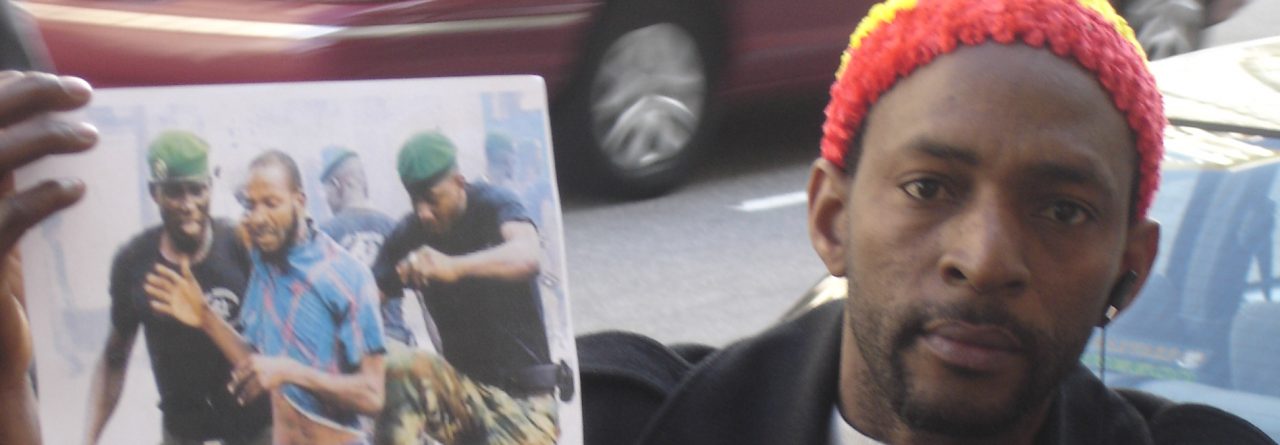It’s been a very bad three days in Guinea. The security forces, in a violent and deadly fashion. prevented the opposition march last Thursday from proceeding down the Fidel Castro highway. Tear gas, live bullets, and excitable security officers shooting as if the marchers were plastic ducks swimming in the pool at the country fair. Except these targets bleed real blood. Two dead and several wounded seriously.
But, the day after, Friday, state-sponsored forces (security, Donzos, and RPG militia) burrowed deep into opposition neighborhoods, primarily Peul, and unleashed their terror. On Friday, there were at least three more extra-judicial killings – all at close range. The president of the opposition party SARP was gravely injured by a rock. Today, the headquarters of Cellou Dalein Diallo’s UFDG party was attacked by security forces with tear gas and shooting while people were inside meeting. More on this in another post.
To pursue one’s constitutional rights in Guinea, is to stare death in the face. We know why Alpha Conde upholds and fosters his repressive state: with the theft of the 2010 election, this is the only way to keep in check the overwhelming majority of Guineans who did not vote for him. He can only continue this way if the international community continues to support him. For several years, Guineans showed a lot of deference to members of the international community, thinking its support would be helpful. But, the international community became increasingly difficult to read as it talked to average Guineans about democracy yet supported a violent and repressive Conde government. In 2009, reeling from the September 28, massacre and rapes and the worrisome Capt. Dadis Camara and his military junta, the international community wanted, in their next move, to refrain from raising the ire of Guinea’s 40,000 plus, largely Malinke, army. This meant that there was only one path for Guinea and the international community was the scout leader. The next president of Guinea had to be a civilian and a Malinke. France was willing to offer its adopted son of 59 years, Alpha Conde. Also, the new president had to be “agreeable” about the sharing of Guinea’s resources. For a very short time, the international community got some of what it was looking for in Conde. Then, his ethnocentric hate speech and policies to cut Peuls out of every aspect of governance was followed by incarcerations and elimination of Peuls. Forget the violence agreement. If Conde makes peace with Peuls, he loses his base of support – Malinkes. Don’t forget the 2010 election year refrain of the Malinkes, “Anybody but a Peul.” Add to this his nepotism, his skimming off the top of mining deals teed up by his overseers, George Soros and Tony Blair, and the nagging concern about that 2010 election “fraught with problems.” Now the question becomes, “Is Conde more of a problem than he is worth?” And this is where things are now. Guineans are asking the international community to choose sides. When you support a pariah, you become a friend of a pariah. When you support someone with blood on his hands, it drip all over yours, too.
Following are two videos: the first is a speech by UFDG party president and opposition leader, Cellou Dalein Diallo, at the April 25 opposition march, where he addresses the international community about the state of Guinea (in French) and the second video is from this past Thursday’s march showing the kids resisting the security forces with rocks – this is an intifada, a very legitimate intifada.
